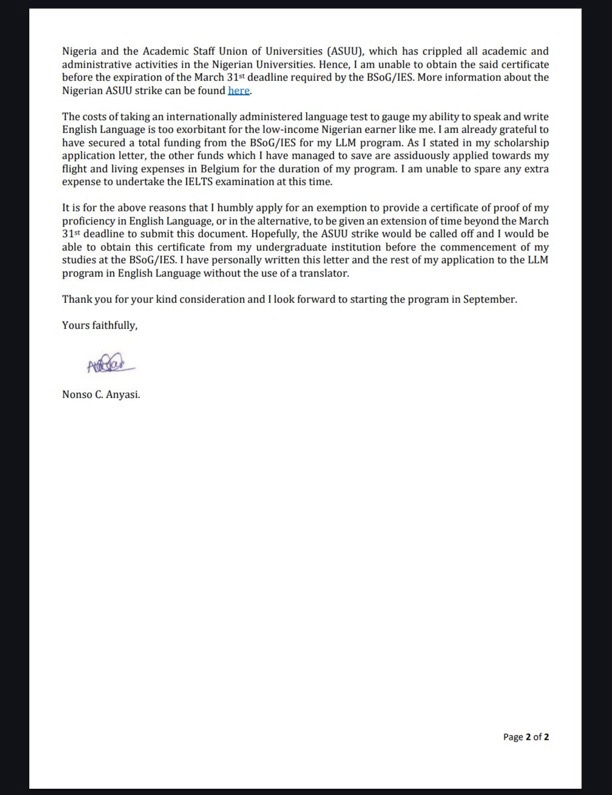


How An African Student with English Language Proficiency was exempted from ielts
Africa Trending News@africatrendingnews
1 year ago
African students who have received their education in English-speaking countries and have demonstrated proficiency in the language can often request exemptions from standardized English language tests like IELTS (International English Language Testing System). For students from countries where English is the official language of instruction, such as Nigeria, Kenya, Ghana, and South Africa, institutions may allow students to provide alternative forms of proof, such as high school or university transcripts, or standardized exams like WAEC or NECO. By presenting evidence of academic qualifications completed in English, students can avoid the additional financial and logistical burden of taking an internationally administered language proficiency test.
In cases where unique circumstances, such as university strikes or delays, make it difficult to obtain official documentation in time, students may also request deadline extensions or specific exemptions from their prospective institutions. Writing a well-structured letter that clearly outlines their academic background, English language qualifications, and any relevant challenges is essential to securing such exemptions.
Here's a letter written by Nonso Clement Anyasi, addressed to the Program Director at the Institute for European Studies, Brussels School of Governance, regarding proof of English language proficiency for an LLM admission in 2022.
Key Points in the Letter:
1. Background and Request:
Nonso is a Nigerian citizen who has been offered admission to pursue an LLM at the BSoG/IES. As part of the admission process, the institution requires proof of English proficiency, and Nonso is requesting an exemption from providing a formal English proficiency test like IELTS, due to the ongoing strike by the Academic Staff Union of Universities (ASUU) in Nigeria.
2. Justification for Exemption:
• English is the official language of instruction in Nigeria, and Nonso has been speaking and writing English since birth.
• He took English as a compulsory subject in secondary school and passed with distinction in both O’Levels and WASSCE exams.
• English was also the language of instruction at his undergraduate university, and he passed English language courses with distinction during his degree in Law.
• Nonso has written legal briefs, arguments, and articles in English, further proving his proficiency in the language.
3. ASUU Strike:
Nonso explains that due to the ongoing ASUU strike, Nigerian universities are unable to issue official documents or certificates. Therefore, he cannot obtain a certificate from his undergraduate institution before the March 31st deadline imposed by the school.
4. Financial Constraints:
He highlights that taking an internationally administered language proficiency test like IELTS would be too expensive for a low-income Nigerian student. Given that he has already secured funding for his tuition and living expenses, paying for additional tests is financially burdensome.
Nonso requests an exemption from the English proficiency certificate requirement or an extension of the deadline, hoping that the ASUU strike will be called off in time for him to obtain the needed documents.
The letter reflects a well-documented case of why Nonso seeks an exemption from taking the IELTS test, relying on his educational background and the unique challenges posed by the strike in Nigeria.
